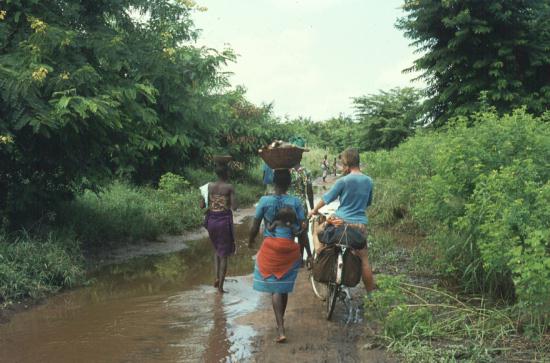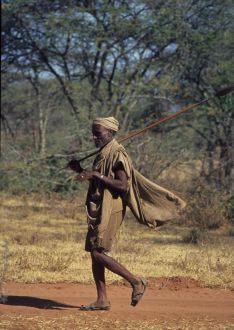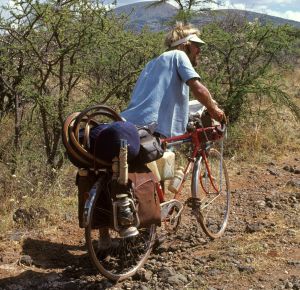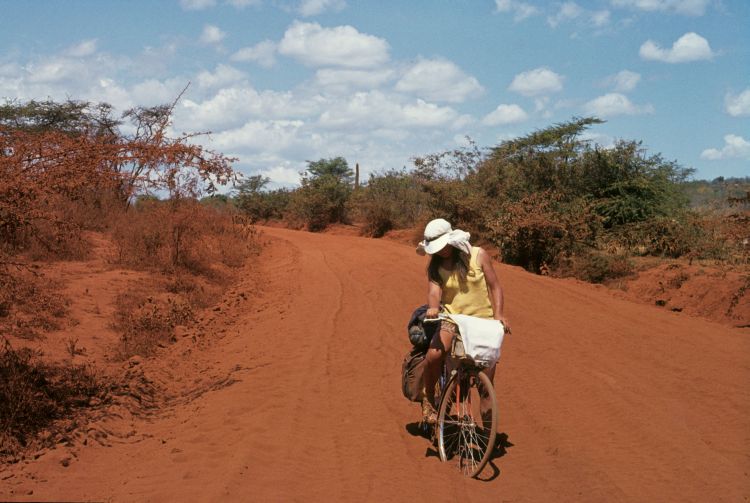| Barelds - Cycling in Ehtiopia by bike | ||||||||||||||||||||
| home | site map | world | children | recent | cooking | dutch | german | react | ||||||||||||
Eastern and Southern Africa (2).

Mozambique: It is not really a road anymore, but then we use the beaten tracks.
I
t seemed as if we had arrived in a robbers' den. A big heavy built man, dark, hairy, with a black curly beard and bushy eyebrows, was taking finger prints. He had a pistol in a holster at his side. Ragged men in ground-coloured shorts full of holes, a squalled towel and a long old rifle rang around their shoulders, were sitting by.The dry river bed, which we had just walked through, was more than a borderline, from a male muslim society to a christian; alcoholic drinks and women were no longer forbidden and each hut looked like a pub with beckoning women, in the doorway.
"I am the schoolmaster", said the alleged robber chief, after we had been waiting for our passports for quite a while. "The captain is in the pub drinking coffee, in the past he was the head of the smugglers", the schoolmaster roared with laughter, "but now he is head of the customs and the smuggling is legal". Finally someone went to the pub with our passports and came back with the necessary signatures in them.

Ethiopia: When you are a warrior or shepherd you never go out without a lance.

Ethiopia: Steep, stony paths, so you have to walk, and full of thorns, so many patches.
In this remote place the road was no more than a path, which led us into the hidden empire. Humans and animals, and every creature that crossed our path ran into the bushes deadly afraid. On long, thin legs, with ulcers and scars, in squalid tattered clothes, sometimes tending a herd of skinny cows, most of the subjects of Hail Selassi went through life in the greatest poverty which we ever saw on our journeys. After two days we had run out of our food-supply, still from Sudan, nowhere on our way we could buy anything edible, the people themselves hardly had anything to eat.

Ethiopia: Sand ground to powder by the traffic, fortunately you could cycle in it like water.
| Start World around | South America | << Previous | Next page >> | |||
| Barelds the world by bicycle - Cycling in Asia, Europe, Africa, America | ||||||